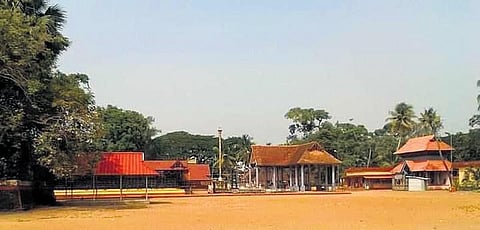

ALAPPUZHA: Cherthala played host to one of the longest public speeches made by Mahatma Gandhi. The three-hour-long address at the Karthyayani Devi temple ground, on January 18, 1937, was to felicitate the Temple Entry Proclamation by Chithira Thirunal Balarama Varma.
“Gandhiji attended a meeting organised by the Cherthala taluk SNDP Yogam to commend the declaration issued by the king of Travancore on November 12, 1936,” says historian and writer Saju Chelangad.
“The proclamation was a move against untouchability.
In his speech, Gandhi stressed on the importance of independence from the British Raj and the role of the king in the historic proclamation. He also attacked the caste system. Thousands gathered to hear him speak. An edited version of the speech is included in the book Epic of Travancore written by Mahadev Desai, the private secretary of Gandhi,” Saju said.
He took time to praise the Travancore king, says Saju, quoting the book: “There can be no doubt that but for his solicitude for faith of his ancestors and but for the wise guidance of Her Highness the Maharani and the able assistance of Sachivothama Sir C P Ramaswami Aiyar, we should not have this proclamation.”
Gandhi’s speech also emphasised divine intervention by quoting the Ishavasya Upanishad. “I will give you only a free translation of that mantra.
It means this: God the ruler and creator pervades, everything that is in the universe down to the tiniest atom. There is nothing, without a single exception, where God is not,” Gandhiji said, according to the book. “If the hand that traced the signature to the Proclamation was that of Maharaja, the spirit which actuated the hand to sign the Proclamation was that of God.”
Gandhi’s speech was well-received by the people of Cherthala, most of whom were from the backward communities. “This inspired a mass movement against colonial rule in the taluk which resulted in many agitations against British rule,” Saju added.